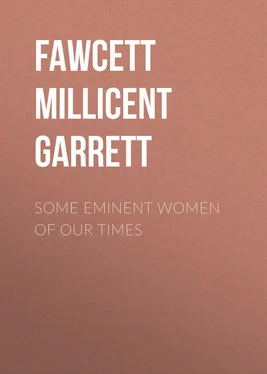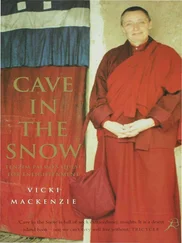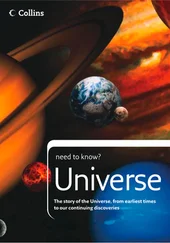Millicent Fawcett - Some Eminent Women of Our Times
Здесь есть возможность читать онлайн «Millicent Fawcett - Some Eminent Women of Our Times» — ознакомительный отрывок электронной книги совершенно бесплатно, а после прочтения отрывка купить полную версию. В некоторых случаях можно слушать аудио, скачать через торрент в формате fb2 и присутствует краткое содержание. Жанр: foreign_antique, foreign_prose, на английском языке. Описание произведения, (предисловие) а так же отзывы посетителей доступны на портале библиотеки ЛибКат.
- Название:Some Eminent Women of Our Times
- Автор:
- Жанр:
- Год:неизвестен
- ISBN:нет данных
- Рейтинг книги:3 / 5. Голосов: 1
-
Избранное:Добавить в избранное
- Отзывы:
-
Ваша оценка:
- 60
- 1
- 2
- 3
- 4
- 5
Some Eminent Women of Our Times: краткое содержание, описание и аннотация
Предлагаем к чтению аннотацию, описание, краткое содержание или предисловие (зависит от того, что написал сам автор книги «Some Eminent Women of Our Times»). Если вы не нашли необходимую информацию о книге — напишите в комментариях, мы постараемся отыскать её.
Some Eminent Women of Our Times — читать онлайн ознакомительный отрывок
Ниже представлен текст книги, разбитый по страницам. Система сохранения места последней прочитанной страницы, позволяет с удобством читать онлайн бесплатно книгу «Some Eminent Women of Our Times», без необходимости каждый раз заново искать на чём Вы остановились. Поставьте закладку, и сможете в любой момент перейти на страницу, на которой закончили чтение.
Интервал:
Закладка:
The extraordinary energy and vitality of Mary Carpenter never declined. When she was over sixty years of age she made four successive visits to India, with the double object of arousing public opinion there about the education of women, and the condition of convicts, especially of female convicts. At the age of sixty-six she visited America. She had long been deeply interested in the social and political condition of the United States, and had many warm personal friends there. Her first impulse to reformatory work had come from an American citizen, Dr. Tuckerman; her sympathy and help had been abundantly bestowed upon the Abolitionist party, and she was of course deeply thankful when the Civil War in America ended as it did in the victory of the North, and in the complete abolition of negro slavery in the United States. Her mind remained vigorous and susceptible to new impressions and new enthusiasms to the last. Every movement for elevating the position of women had her encouragement. She frequently showed her approval of the movement for women’s suffrage by signing petitions in its favour, and was convinced that legislation affecting both sexes would never be what it ought to be until women as well as men had the power of voting for Members of Parliament. In 1877, within a month of her death, she signed the memorial to the Senate of the London University in favour of the admission of women to medical degrees.
She passed away peacefully in her sleep, without previous illness or decline of mental powers, in June 1877, leaving an honoured name, and a network of institutions for the reform of young criminals, and the prevention of crime, of which our country will for many years to come reap the benefit.
III
CAROLINE HERSCHEL
“As when by night the glass
Of Galileo less assured observes
Imagined lands and regions in the moon.” – Paradise Lost.
Every one knows the fame of Sir William Herschel, the first distinguished astronomer of that name, the builder and designer of the forty-foot telescope, and the discoverer of the planet, called after George III., Georgium Sidus. Hardly less well known is the name of his sister, Caroline Herschel, who was her brother’s constant helper for fifty years. She was the discoverer of eight comets; she received, for her distinguished services to science, the gold medal of the Royal Astronomical Society, and the gold medal conferred annually by the King of Prussia for science; she was also made an honorary member of the Royal Astronomical Society and of the Royal Irish Academy, and received many other public marks of appreciation of the value of her astronomical labours. Few women have done as much as she for the promotion of science, and few have been more genuinely humble in their estimate of their own attainments. Nothing made her more angry than any praise which appeared, even in the slightest degree, to detract from the reputation of her brother; over and over again she asserted that she was nothing more than a tool which he had taken the trouble to sharpen. One of her favourite expressions about herself was that she only “minded the heavens” for her brother. “I am nothing,” she wrote; “I have done nothing: all I am, all I know, I owe to my brother. I am only a tool which he shaped to his use – a well-trained puppy-dog would have done as much.”
Scientific men and scientific societies did not endorse Caroline Herschel’s extremely humble estimate of herself. In the address to the Astronomical Society by Mr. South, on presenting the medal to Miss Herschel in 1828, the highest praise was conferred upon her as her brother’s fellow-worker, and as an original observer. “She it was,” said Mr. South, “who reduced every observation, made every calculation; she it was who arranged everything in systematic order; and she it was who helped him (Sir W. Herschel) to obtain his imperishable name. But her claims to our gratitude do not end here: as an original observer she demands, and I am sure she has, our unfeigned thanks.” He then narrates the series of her astronomical discoveries, and adds, referring to the brother and sister: “Indeed, in looking at the joint labours of these extraordinary personages, we scarcely know whether most to admire the intellectual power of the brother, or the unconquerable industry of his sister.”
The sharpest tool, or the best-trained puppy-dog in the world, could hardly have earned such praise as this. Without endorsing what Caroline said of herself in her generous wish to heighten the fame of her brother, it must, however, be conceded that in a remarkable degree she was what he made her. With an excellent, and indeed an exceptionally powerful, natural understanding, she was ready to apply it in any direction her brother chose. She was far from being a mere tool, but her mind resembled a fine musical instrument upon which her brother was able to play the lightest air or the grandest symphony, according as he pleased. At his bidding she became, first, a prima donna, then an astronomer; if he had so wished it, she would probably with equal readiness and versatility have turned her attention to any other branch of science or art. Caroline Herschel was, indeed, a fine example of what devoted love can do to elevate the character and develop the natural capacity of the understanding.
She was born in Hanover on the 16th March 1750, the youngest but one of six children. Her exceptionally long life of nearly ninety-eight years closed in January 1848. Her memory, therefore, included the earthquake of Lisbon, the whole French Revolution, the meteor-like rise and fall of Napoleon, and all the history of modern Europe to the eve of the socialistic outbreak of 1848. Her family life, before she left Germany, was of the narrowest possible kind. She had only one sister, seventeen years older than herself; and as Sophia Herschel married early, Caroline became the only girl in her family circle, and to the full was she kept to those exclusively feminine pursuits and occupations which the proprieties of Germany at that time enforced. Her mother appears to have been enthusiastically opposed to the education of girls. Her father wished to give her a good education, but the mother insisted that nothing of the kind should be attempted. How she learned to read and write we are not told in the biography written by her grand-niece, Mrs. J. Herschel. These accomplishments were by no means common among German women of the humbler middle class a hundred years ago. She did, however, acquire them, in spite of her mother’s decree that two or three months’ training in the art of making household linen was all the education that Caroline required. Her father, who was a professional musician himself, wished to teach her music, but could only do so by stealth, or by taking advantage of half an hour now and then, when his wife was in an exceptionally good temper. In a letter, written when she was eighty-eight years old, Caroline recalls these furtive hours stolen from the serious occupations of her life, which then consisted in sewing, “ornamental needlework, knitting, plaiting hair, and stringing beads and bugles.” “It was my lot,” she writes, “to be the Cinderella of the family… I could never find time for improving myself in many things I knew, and which, after all, proved of no use to me afterwards, except what little I knew of music … which my father took a pleasure in teaching me – N.B., when my mother was not at home. Amen. ”
Very early in her life her brother William became Caroline’s idol and hero. He was twelve years older than herself, and distinguished himself among the group of brothers for tenderness and kindness to the little maiden. Her eldest brother, Jacob, was a fastidious gentleman, and Caroline’s inability to satisfy his requirements for nicety at table and as a waitress, often earned her a whipping. But her brother William’s gentility was of a different order. She narrates one instance, which doubtless was a specimen of others, when “My dear brother William threw down his knife and fork and ran to welcome and crouched down to me, which made me forget all my grievances.” Little did William or Caroline guess that in the kind brother soothing the little sister’s trouble, the future astronomer was “sharpening the tool” that was hereafter to be of such inestimable service to him.
Читать дальшеИнтервал:
Закладка:
Похожие книги на «Some Eminent Women of Our Times»
Представляем Вашему вниманию похожие книги на «Some Eminent Women of Our Times» списком для выбора. Мы отобрали схожую по названию и смыслу литературу в надежде предоставить читателям больше вариантов отыскать новые, интересные, ещё непрочитанные произведения.
Обсуждение, отзывы о книге «Some Eminent Women of Our Times» и просто собственные мнения читателей. Оставьте ваши комментарии, напишите, что Вы думаете о произведении, его смысле или главных героях. Укажите что конкретно понравилось, а что нет, и почему Вы так считаете.




![Корнелл Вулрич - Murder at Mother’s Knee [= Something That Happened in Our House]](/books/398097/kornell-vulrich-murder-at-mother-s-knee-somethin-thumb.webp)







